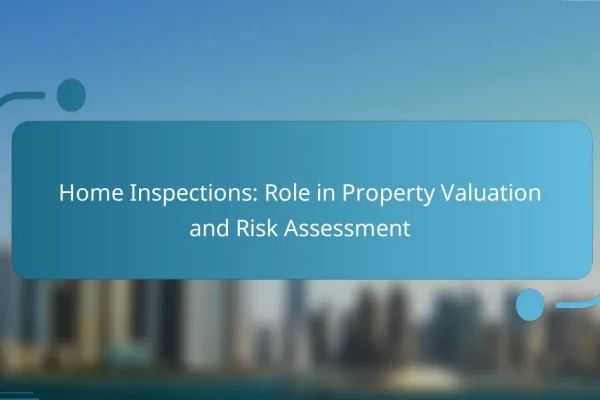What are the best methods for property valuation in the UK?
The best methods for property valuation in the UK include comparative market analysis, the income approach, the cost approach, automated valuation models, and professional appraisals. Each method has its strengths and is suited for different types of properties and market conditions.
Comparative Market Analysis
Comparative market analysis (CMA) involves evaluating similar properties in the same area that have recently sold to determine a property’s market value. This method considers factors such as location, size, condition, and amenities to provide a realistic estimate.
When conducting a CMA, it’s essential to select properties that are truly comparable, ideally within a few miles and sold within the last six months. This can help ensure the valuation reflects current market trends.
Income Approach
The income approach is primarily used for investment properties and estimates value based on the income the property generates. This method calculates the net operating income (NOI) and applies a capitalization rate to determine value.
Investors should consider local rental rates and occupancy levels when using this approach. A common rule of thumb is to ensure the property generates a return that meets or exceeds local market averages.
Cost Approach
The cost approach estimates property value by calculating the cost to replace or reproduce the property, minus depreciation. This method is particularly useful for new constructions or unique properties where comparable sales data may be scarce.
To apply the cost approach, assess the current cost of materials and labor in the area, then factor in depreciation based on the property’s age and condition. This can provide a solid baseline for valuation.
Automated Valuation Models
Automated valuation models (AVMs) use algorithms and data analytics to estimate property values quickly. These models analyze vast amounts of data, including recent sales, property characteristics, and market trends.
While AVMs can provide a fast estimate, they may lack the nuance of a human appraisal. It’s advisable to use AVMs as a starting point and follow up with a more thorough analysis or professional appraisal for accuracy.
Professional Appraisals
Professional appraisals involve hiring a certified appraiser to assess a property’s value based on various factors, including market conditions, property condition, and comparable sales. This method is often required for mortgage lending and legal purposes.
When seeking a professional appraisal, ensure the appraiser is accredited and familiar with the local market. This can help ensure the valuation is credible and reliable for your specific needs.
How do local market conditions affect property valuation?
Local market conditions significantly influence property valuation by shaping supply and demand dynamics, economic indicators, and neighborhood trends. Understanding these factors can help buyers and sellers make informed decisions about property investments.
Supply and Demand Dynamics
Supply and demand are fundamental to property valuation. When demand for homes exceeds supply, prices tend to rise, while an oversupply can lead to price declines. For instance, in a growing city with limited housing, property values may increase by double digits annually.
To assess supply and demand, consider local inventory levels and sales trends. A low inventory of homes typically signals a seller’s market, while high inventory may indicate a buyer’s market. Tracking these trends can guide pricing strategies for sellers and negotiation tactics for buyers.
Economic Indicators
Economic indicators, such as employment rates, income levels, and interest rates, play a crucial role in property valuation. A strong local economy with low unemployment and rising wages often correlates with increased property values. Conversely, economic downturns can suppress demand and lower prices.
Monitoring key indicators like the local job market and interest rate trends can provide insights into future property value movements. For example, if interest rates are projected to rise, potential buyers may act quickly to secure lower financing costs, impacting demand and prices.
Neighborhood Trends
Neighborhood trends, including school quality, crime rates, and amenities, significantly affect property values. Areas with highly rated schools and low crime rates generally command higher prices. Buyers often prioritize neighborhoods that offer desirable features, which can drive up demand.
To evaluate neighborhood trends, research local amenities, community developments, and demographic shifts. Engaging with local real estate agents can also provide valuable insights into emerging neighborhoods that may offer investment opportunities.
What factors influence property value?
Several key factors significantly influence property value, including location, size and condition of the property, current market trends, and the quality of nearby school districts. Understanding these elements can help buyers and sellers make informed decisions in real estate transactions.
Location
Location is often considered the most critical factor in determining property value. Properties situated in desirable neighborhoods with access to amenities, public transport, and low crime rates typically command higher prices. Proximity to urban centers or natural attractions can also enhance a property’s appeal.
When evaluating location, consider local economic conditions, future development plans, and zoning regulations, as these can impact property values over time. For instance, an area undergoing revitalization may see rising values, while regions with declining industries might experience the opposite.
Property Size and Condition
The size and condition of a property play a vital role in its valuation. Larger homes often have higher market values, but this can vary based on the local demand for space. Additionally, well-maintained properties with modern updates tend to attract more buyers and achieve better prices than those requiring significant repairs.
When assessing property condition, focus on key aspects such as the roof, plumbing, electrical systems, and overall aesthetic appeal. A thorough inspection can reveal potential issues that may lower the property’s value, so addressing these before listing can be beneficial.
Market Trends
Current market trends significantly affect property values, as they reflect supply and demand dynamics. In a seller’s market, where demand exceeds supply, property values often rise, while in a buyer’s market, values may stagnate or decline. Keeping an eye on local real estate trends can provide insights into the best times to buy or sell.
Consider factors such as interest rates, economic indicators, and seasonal fluctuations when analyzing market trends. For example, a drop in mortgage rates can stimulate buyer interest, leading to increased property values in the short term.
School District Ratings
School district ratings can greatly influence property values, particularly for families with children. Homes located in areas with highly-rated schools often see higher demand, which can drive up prices. Buyers frequently prioritize access to quality education when searching for a home.
Research school performance metrics, such as test scores and graduation rates, to gauge the impact on property value. Additionally, consider the reputation of the district and any unique programs offered, as these can enhance desirability and, consequently, property values.
How to choose a property valuation service?
Selecting a property valuation service involves evaluating their experience, range of services, and client feedback. These factors ensure you receive an accurate and reliable assessment of your property’s worth.
Experience and Credentials
When choosing a property valuation service, prioritize those with extensive experience and relevant credentials. Look for professionals who are certified by recognized organizations, such as the Royal Institution of Chartered Surveyors (RICS) or similar bodies in your country.
Additionally, consider their track record in your specific market. A valuer familiar with local property trends and regulations will provide a more accurate valuation. Ask for examples of past valuations they have conducted in your area.
Service Offerings
Different property valuation services offer various types of assessments, including residential, commercial, and industrial valuations. Ensure the service you choose specializes in the type of property you own or are interested in.
Some services may also provide additional offerings, such as market analysis, investment advice, or property management insights. Assess your needs and select a service that aligns with your requirements for a comprehensive evaluation.
Client Reviews
Client reviews are a valuable resource when selecting a property valuation service. Look for testimonials on their website or third-party review platforms to gauge customer satisfaction and service quality.
Pay attention to feedback regarding accuracy, professionalism, and communication. A service with consistently positive reviews is likely to provide a reliable valuation experience. Consider reaching out to past clients for direct insights into their experiences.
What are the costs associated with property valuation?
The costs associated with property valuation can vary significantly based on factors such as property type, location, and the complexity of the appraisal. Generally, these costs include appraisal fees, inspection fees, and potential additional charges for specialized reports.
Average Appraisal Fees
Average appraisal fees typically range from a few hundred to over a thousand dollars, depending on the property’s value and location. For residential properties, fees often fall between $300 and $600, while commercial appraisals can exceed $1,000.
Factors influencing appraisal fees include the property’s size, type, and the local market conditions. In urban areas, where demand for appraisals may be higher, costs can be on the upper end of the spectrum.
When budgeting for property valuation, consider potential additional costs such as travel fees for the appraiser or charges for expedited services. It’s wise to obtain quotes from multiple appraisers to ensure competitive pricing and transparency.












